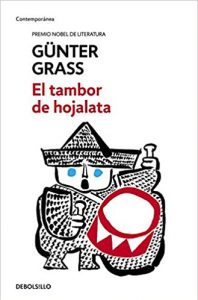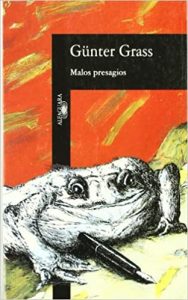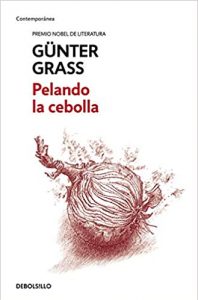Günter Grass He was a controversial author at times due to his narrative proposal with large doses of social and political criticism. But he, in turn, is a distinguished writer capable of presenting us with very human stories that overflow from that scenography of the political as an element almost always responsible for violating coexistence to the most necessary point in the face of inaction capable of giving everything away. At least in the historical period in which he lived and always through totalitarian systems of power in the political or economic sphere.
Narrator of the Germany resulting from the Second World War, and creator of a realistic style, with that fatalistic touch of the idealist on the verge of convincing himself that the social is almost always a lost battle, he will end up soaking his literary work with that idea of the eternal losers: the people, families, individuals subjected to the capricious ups and downs of great interests and the deformity of patriotic ideals.
Putting yourself to read Günter Grass is an exercise in approaching European intrahistory, one that the officers do not take care of transferring to official documentation and that only writers like him present us with their most absolute crudeness.
3 Recommended Novels by Günter Grass
The tin drum
Masterpiece not only of this author but of the whole of world literature. The author turned to the eyes of a child excited about his third birthday to try to see through that human liberated from all stigma, from all ideology.
A clear look at a Germany saturated with ideologies of fear, at a Europe driven to self-destruction, at an imploding world that was barely holding on socially and politically. Óscar, the boy, takes us by the hand and shows us what is left of the world. In the following link this first novel is accompanied by the entire Danzig trilogy.
Summary: The tin drum was considered difficult to read when it was published in 1959. Time has given it the ease of masterpieces, the indisputable affirmation of its own genius, the enormous stature of its inordinate inventiveness, the clear penetration of its cruel, almost masochistic criticism (of German on Germany).
The story of Oscar, the little boy who didn't want to grow up, is one of the most endearing literary symbols of our time. The tin drum is, without any exaggeration, one of the books that the XNUMXth century will leave in the History of Literature.
No one will know how to read our present without having read it. The day of his third birthday is a determining date in the life of Óscar, the little boy who did not want to grow up. Not only is it the day he makes the decision to let it grow, but he receives his first tin drum, an object that will become an inseparable companion for the rest of his days.
The scathing criticism, ruthless irony, spectacular sense of humor and creative freedom with which Günter Grass builds this masterpiece make The Tin Drum one of the most prominent titles in the history of literature.
Bad omens
Sometimes you consider that the work of Günter Grass is an intimate walk through the Europe of the XNUMXth century, a successful composition of lives and scenarios that make up what was the real life of Europeans from here and there, some more favored and others less, some persecuted and others alienated ...
Summary: It is a time of great change in Europe. Everything suddenly seems imaginable, nothing impossible. A Polish woman and a German - she restorer, the art historian - meet in Danzig in 1989, on All Souls' Day.
When they visit a cemetery together they have an idea: Would it not be a humanitarian act and a contribution to the reconciliation between Poland and Germany to give the Germans who had once fled or expelled from Danzig the chance to find their last rest in their former land? They founded a German-Polish Cemetery Society and inaugurated the first Reconciliation Cemetery.
But with the new partners new interests come into play... A parable concocted with a taste for detail, told with gentle irony and satirical acuity, a serene and melancholic love story: a great novel full of tenderness and passion for life, new prose work by Günter Grass.
Peeling the onion
And seeing all that Günter Grass has contributed to History and Literature, you may want to get closer to the character himself ... Over time, memory tends to mythologize or overshadow our passage through the world. Grass does an exercise in introspection of what it was and why it was. Honest literature to open up to the world.
Summary: Peeling the onion is an extraordinary memory exercise in which Günter Grass asks himself without complacency and with absolute sincerity about the events that marked the first years of his life.
From his childhood in Danzig, his incorporation to the Waffen SS, his work as a miner on the rubble of that post-war Germany, until his exile in Paris, where he wrote The Tin Drum for two very hard years.
This book is the narration of an intense life and is, at the same time, an honest confession in which Günter Grass proposes how not asking is a form of commitment. The pages of Pelando la onion have a genuine freshness and strength that invite us to delve into the work of a writer who is already one of the undisputed classics of current literature.



